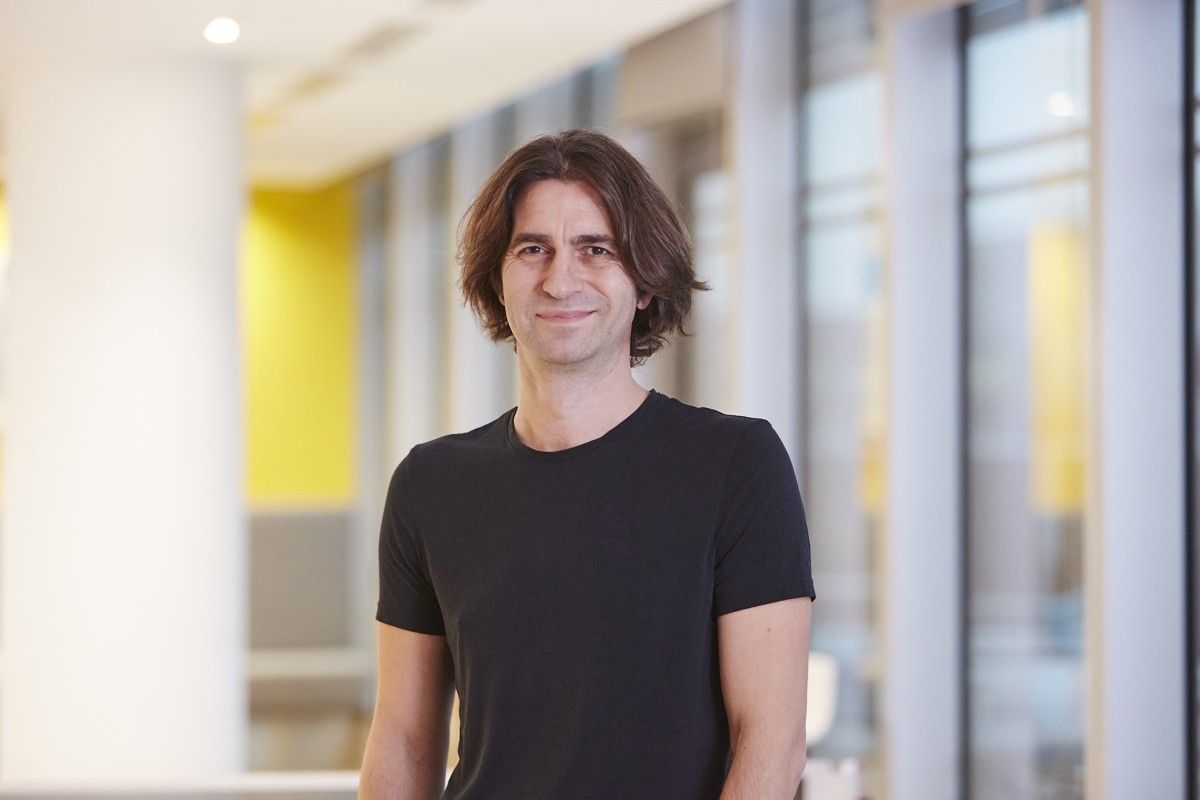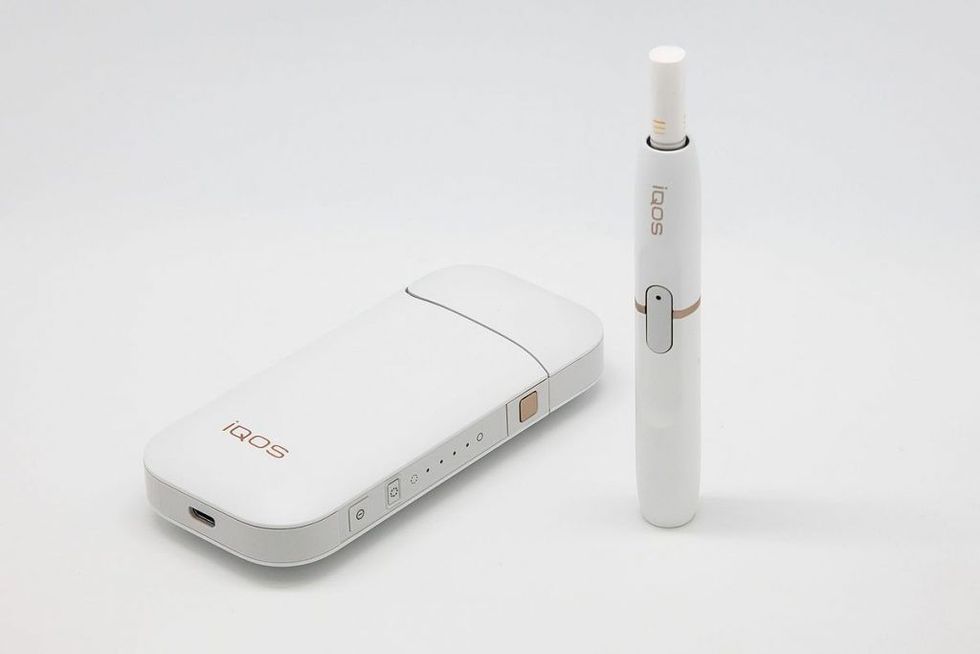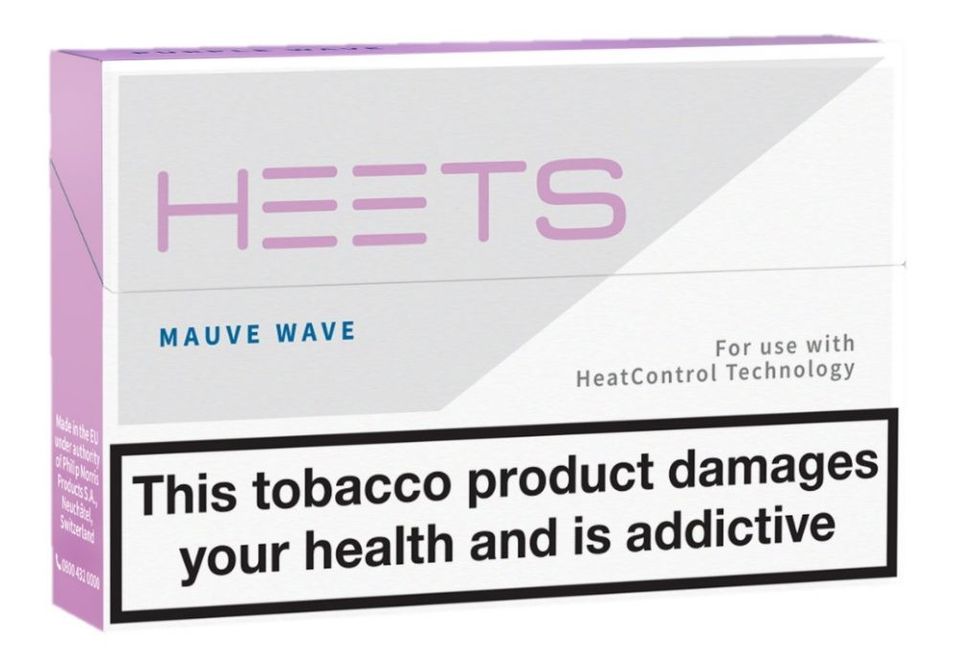PML closed its 16 IQOS-branded shops after two years of operation. What was the thinking behind that and how has the change of direction affected sales?
IQOS is growing rapidly and is the number one smoke-free product in the UK – surpassing its nearest competitor in June 2020[1]. The increased demand in the heated tobacco category has prompted PMI to increase the availability of IQOS and HEETS in the UK, with Philip Morris Limited (PML) doubling the size of its field force and expanding into 18 new cities and regions at the start of 2021. Our customers can now buy our products in more places than ever before, from thousands of local convenience retailers to major supermarkets, as well as our own IQOS website.
Successive lockdowns have changed consumer behaviour—like many companies we have responded by prioritising rapidly growing channels which have seen a significant increase in sales over the last year. The changes to our distribution model reflect these changes in consumer behaviour rather than a lack of demand for IQOS, which is growing rapidly.
IQOS launched in 2016 and already accounts for 25 per cent pf PMI’s business – in what way did this affect thinking behind the strategic decision to “quit smoking” at Philip Morris?
In 2016, Philip Morris International (PMI) announced that it was moving away from cigarettes and staking its entire future on a portfolio of smoke-free products including, IQOS, our breakthrough heated tobacco system.
In the five years since, we have accelerated our journey to become a majority smoke-free business by 2025—in February 2021, we increased our ambition to generate at least 50 per cent of net revenues from smoke-free products. In the third quarter of 2021, smoke-free products accounted for nearly one third (29 per cent) of total net revenues globally[2].
In the UK, we are committed to a smoke-free future and with the right measures in place could stop selling cigarettes in 10 to 15 years’ time. To accelerate this transition, we are improving access to smoke-free products through the convenience channel for those adult smokers who want to continue using tobacco or nicotine products.
We strongly believe that independent retailers are a vital component in providing meaningful access to better alternatives, particularly in more deprived communities within the UK where smoking prevalence is disproportionately high.[3]
What is the position of heat-not-burn products and uptake in the UK now?
Momentum behind the heated tobacco category continued to build in 2021.
In the third quarter of 2021 (September), UK market share for HEETS was up by 0.7 percentage points vs. the prior year quarter to 1.9 per cent. In that same quarter, London – a key trend indicator in the UK – was up 2.2 percentage points to 5.0 per cent[4].
In that same quarter, the number of stores selling HEETS in the UK had increased six-fold since 2018. This has resulted in PML selling almost 50 times the volume of HEETS each month than we did on average in 2017[5].
While category growth is strong, I’m most proud of the impact we’ve had on adult smokers and the percentage of those we’ve helped, through our retail partners, to abandon cigarettes. Total global IQOS users were estimated at approximately 20.4 million as of September 30, 2021, of which approximately 14.9 million have switched to IQOS and stopped smoking.[6]
What has the traffic to your new digital trade engagement platform from independent retailers been like since rolling out IQOS more generally after closing the lounges?
Compared to this time last year, engagement time on PML’s new Digital Trade Engagement (DTE) platform went up significantly by 76 per cent.
Features such as 24-hour fast-track delivery on our range of HEETS, including our tenth variant, HEETS Mauve, as well as peer-to-peer engagement tools, our latest trade incentives, and new support services, strengthened the digital support we offered retail partners in 2021.
DTE forms part of an omni-channelled approach we take to supporting retailers, so they get the most out of stocking IQOS and HEETS. The support and services offered extend beyond digital platforms to having more boots on the ground, with a field force that doubled in size in 2021 and will continue to grow in 2022.
This investment is vital to our smoke-free ambitions, providing the convenience channel with multiple touchpoints to engage with, so they feel fully serviced and are given every opportunity to expand their knowledge and understanding of our portfolio of smoke-free products.
In August, HEETS’ share among all cigarettes and heated tobacco sticks in Europe surpassed five percent, and in London was more than double 2020’s share. What is this year looking like and what incentives and discounts are you currently providing?
Retailer partners should visit PML’s DTE platform or engage with their field force representative for full details on our latest trade incentives.
On advising adult customers on IQOS and HEETS, retailers may want to focus on cost and choice – two potential barriers preventing many adult smokers from switching to smoke-free products.
20 HEETS tobacco sticks cost £5, less than half of the average price of £10.77 for a pack of 20 cigarettes[7]. Comparing the cost of a pack of HEETS with the cost of cigarettes and communicating that cost saving to an adult smoker, could mean the difference in them switching to a smoke-free alternative or continuing to smoke.
Some smokers will only leave cigarettes behind and switch to better alternatives if these products meet preferences linked to taste and nicotine delivery or replicate the ritual characteristics of a cigarette. Raising awareness that heated tobacco delivers a real tobacco taste and cigarette-like satisfaction could help smokers view these products as a viable alternative to cigarettes.
Giving smokers a choice of variants to meet their different taste preferences plays an important role in product acceptance. With a choice of ten HEETS variants available – ranging from smooth or full-bodied classic tobacco through to a choice of menthol blends – retailers should ensure they stock a wide range to meet the preferences of their customers.
IQOS Mesh disappeared without announcement in early 2020, along with the VEEV nicotine cartridges it used. Is there any latitude to renew a PMI vapour offer, either as a pod or a disposable?
We continuously improve our products to meet the changing needs of adult consumers, and, ultimately, to switch every adult smoker who would otherwise continue smoking to smoke-free products.
With a global conversion rate of 73 per cent, our primary focus as a market is on IQOS and continuing to expand the category throughout the UK.
IQOS VEEV – our most advanced e-vapor product to-date - is the successor to MESH and first launched in New Zealand in August 2020. Further expansion into other markets will be announced separately.
Competitors such as BAT originally left the HNB market open to you in the UK by not selling their glo products here. Likewise, JTI was shy with Ploom. Now that Ploom is here, however, how do you view the new competitive pressure and what are your plans for meeting it?
IQOS is the number one smoke-free brand in the UK, a position it has held since June 2020.
The launch of a new heated tobacco product in the market is good news for the category and increases the choice adult customers have available to them.
In 2021, PML changed its entire commercial model to fully support independent retailers. Their importance to us, the adult customers they serve and the role they can play in accelerating the transition to a smoke-free future is significant.
In 2022, we will consolidate the support we offer our retail partners with a sharp focus on expanding their knowledge of the heated tobacco category. This will include the distribution of multilingual content via our DTE platform and within the field, to help retailers communicate the benefits of IQOS to their adult customers.
How is the IQOS 18 Cities initiative progressing, and do you plan to expand its scope? What are you doing to get more IQOS product more easily into retailers’ hands?
At the start of 2021, PML expanded into 18 new cities throughout the UK. Based on consumer demand and growing popularity in the heated tobacco category, we went further and are now present in over 30 cities and regions nationwide.
For us, the success of IQOS isn’t solely dependent on getting the product into the hands of more retailers faster; it’s about ensuring we’re phased in our approach – onboarding our retail partners successfully and helping them maximize the benefits that heated tobacco can bring, both to their businesses and the adult smokers they serve.
This means supporting retailers create a good retail experience, providing materials so customers can deliberate and consider their options away from the counter, and encourage retailers to seek best practice from their peer group.
NOTES
[1] Nielsen: “Smoke-Free” product categories – average SOM (June ’20-’21) e-cigarettes (device and consumables) and Heat-Not-Burn (device and consumables) specifically – in Multiple Grocers and General Trade in retail[2]PMI 2021 Third-Quarter Results[3]Local tobacco control profiles for England: short statistical commentary, December 2021 - GOV.UK[4]PMI 2021 Third-Quarter Results[5]PMI Financials and Estimates[6]PMI 2021 Third-Quarter Results[7]Assumes average price of cigarettes at £10.77 per pack. Source: ONS dataset. Average price – Cigarettes 20 king size filter, 2019.RRP = Recommended Retail Price. All on shelf prices selected by retailers alone.



